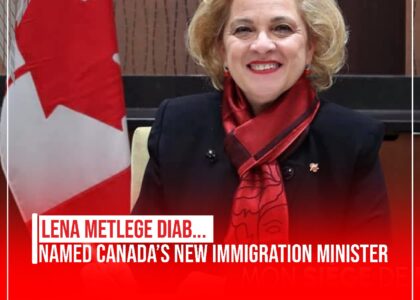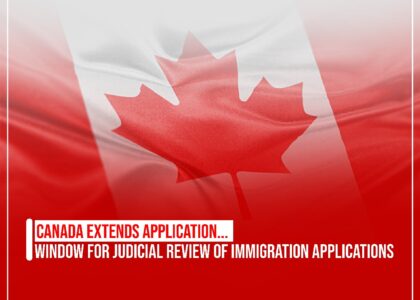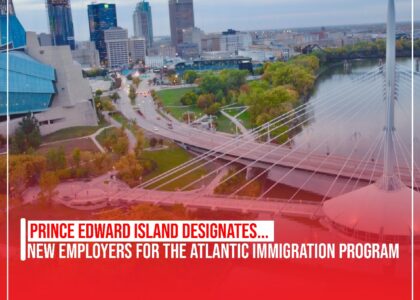The Canadian government, through Immigration, Refugees, and Citizenship Canada (IRCC), has introduced the Francophone Community Immigration Pilot (FCIP). This new pathway, initially announced in March 2024 and detailed further in December 2024, is aimed at supporting French-speaking immigrants and bolstering Francophone communities outside of Quebec.
This article will delve into the specifics of the FCIP, including which communities are involved, the eligibility requirements, and the application process for prospective applicants.
What is the Francophone Community Immigration Pilot (FCIP)?
The FCIP is an immigration program that invites French-speaking newcomers to settle and work in Canadian communities outside Quebec. This pathway allows candidates with an intermediate level of French proficiency and a valid job offer in certain priority occupations to receive Canadian permanent residency (PR).
The initiative seeks to attract individuals who can contribute to the workforce in areas with a demonstrated need for French-speaking professionals. To qualify, applicants must meet certain language, employment, and residency criteria.
Communities Selected for the FCIP
For candidates to be eligible for permanent residency through the FCIP, they must meet specific requirements, including obtaining a genuine job offer from an employer in a designated community. IRCC has selected several communities across Canada to participate in the program.
The selected communities are:
- Acadian Peninsula (New Brunswick)
- Sudbury (Ontario)
- Timmins (Ontario)
- Superior East Region (Ontario)
- St. Pierre Jolys (Manitoba)
- Kelowna (British Columbia)
Some of these communities, including parts of Acadian Peninsula, Sudbury, Timmins, and St. Pierre Jolys, are also part of IRCC’s Welcoming Francophone Communities Initiative. This initiative aims to integrate French-speaking immigrants and support their settlement in Francophone regions outside Quebec.
How Do Employers and Communities Participate?
To participate in the FCIP, communities must be designated by IRCC as eligible for the program. Employers in these communities can apply to become “designated employers” under the FCIP through the IRCC website.
The IRCC has already begun collaborating with local economic development organizations in these selected communities, training them to issue nominations for potential candidates. As part of this process, each community will publish a list of priority occupations. Employers seeking to hire French-speaking immigrants can expect to find details on the application process in the coming weeks.
Candidate Eligibility Requirements for the FCIP
Candidates applying for the FCIP must meet a set of eligibility criteria. Below is a breakdown of the key requirements:
- Certificate of Recommendation: Candidates must obtain a valid certificate from an economic development organization at the time of their application. This certificate confirms that the individual meets the requirements for the program.
- Genuine Job Offer: Applicants must present a legitimate job offer from a designated employer. The job offer must meet specific conditions set by IRCC and the community.
- Work Experience: Candidates must show relevant work experience to qualify. However, international graduates may be exempt from this requirement under certain conditions.
- Language Proficiency: Applicants must demonstrate a French language proficiency of at least NCLC (Niveaux de compétence linguistique canadiens) level 5 in reading, writing, speaking, and listening.
- Education: Applicants must have completed at least a secondary school education.
- Intent to Reside: Candidates must show that they intend to live and work in the designated community where they will be employed.
- Financial Requirements: Applicants must demonstrate they have enough funds to support themselves and their family for one year. The required amount is typically half of the Low-Income Cut-off (LICO) criteria for the community.
Special Considerations for International Graduates
International graduates applying through the FCIP may be exempt from the work experience requirement if they meet specific conditions. Additionally, newcomers currently residing in Canada must ensure they have valid temporary resident status (e.g., work permit, study permit, or visitor visa) at the time of their application.
Also Read: Canada Reduces International Student Permits for Second Consecutive Year: What You Need to Know
Work Permits for FCIP Candidates
Candidates who apply for permanent residence through the FCIP may also be eligible to receive a work permit while their PR application is processed. These work permits can be valid for up to two years.
To qualify for a work permit under the FCIP, candidates must:
- Have a valid job offer from a designated employer.
- Have a referral letter from the participating community.
- Meet all other criteria for work permit eligibility.
The Role of Stakeholders in the FCIP
The FCIP involves three primary stakeholders, aside from the applicants themselves:
- Designated Communities: These are the communities outside Quebec selected by the Minister of Immigration to take part in the program. These communities are crucial in attracting and integrating French-speaking newcomers.
- Economic Development Organizations: These organizations in each community are responsible for issuing certificates of nomination to eligible applicants. They also collaborate with local employers to identify priority occupations.
- Designated Employers: These employers are chosen by economic development organizations to participate in the FCIP by hiring qualified French-speaking immigrants.
Background on the FCIP and Its Impact
The FCIP is part of Canada’s broader Francophone Immigration Strategy, which aims to increase the number of French-speaking immigrants outside of Quebec. This initiative aligns with Canada’s goal of maintaining its bilingual identity and fostering a diverse workforce in both English and French-speaking communities.
By offering an immigration pathway specifically designed for French-speaking individuals, the program seeks to contribute to the growth of Canada’s Francophone population, ensure a steady supply of skilled workers in priority occupations, and support the long-term integration of newcomers into Canadian society.
Conclusion
The Francophone Community Immigration Pilot (FCIP) provides a promising opportunity for French-speaking individuals seeking to immigrate to Canada. By targeting specific communities outside Quebec, the program helps promote the integration of French speakers and strengthens Canada’s multicultural workforce.
Applicants interested in the FCIP should familiarize themselves with the eligibility criteria, including language requirements, job offers, and residency intentions. The program offers a clear pathway to Canadian permanent residency for those who meet the qualifications and are ready to contribute to Canada’s diverse economy.
To learn more about the FCIP and begin your application, stay updated on new announcements from IRCC and the participating communities.





